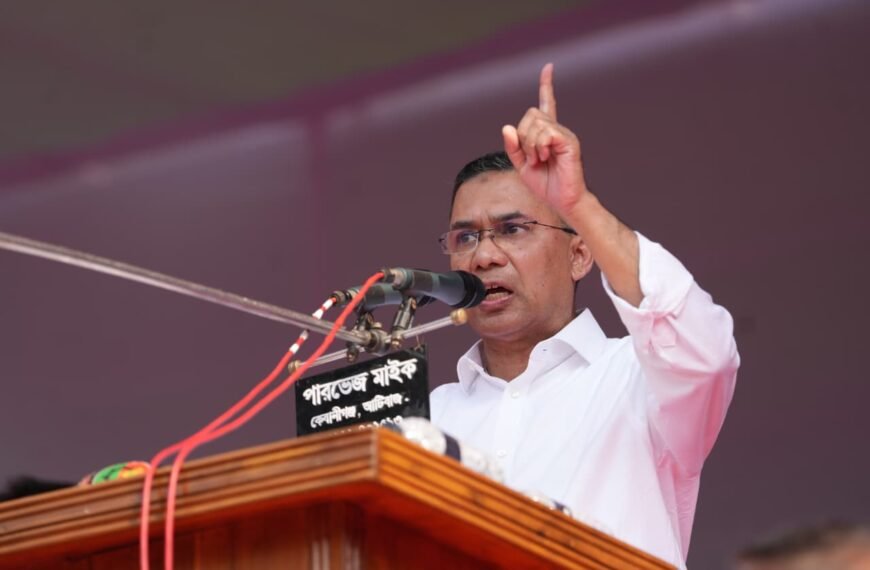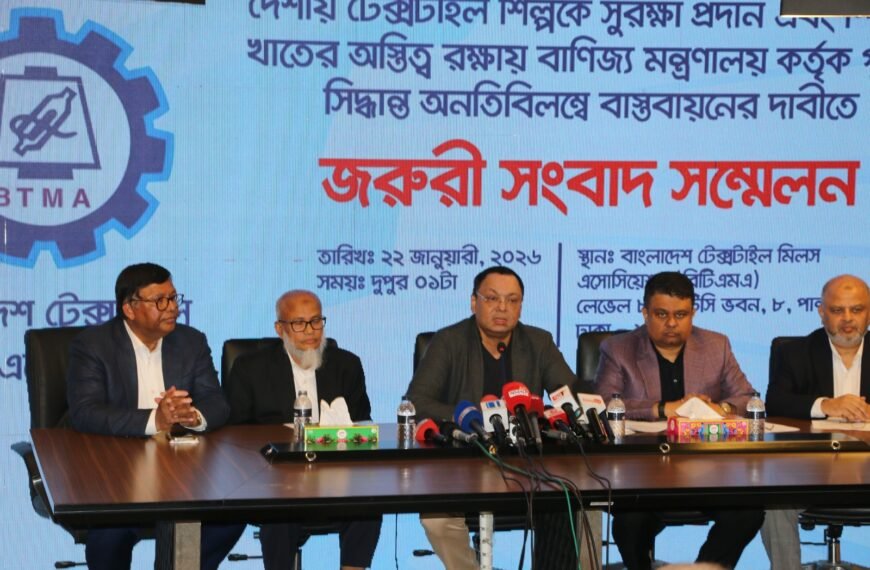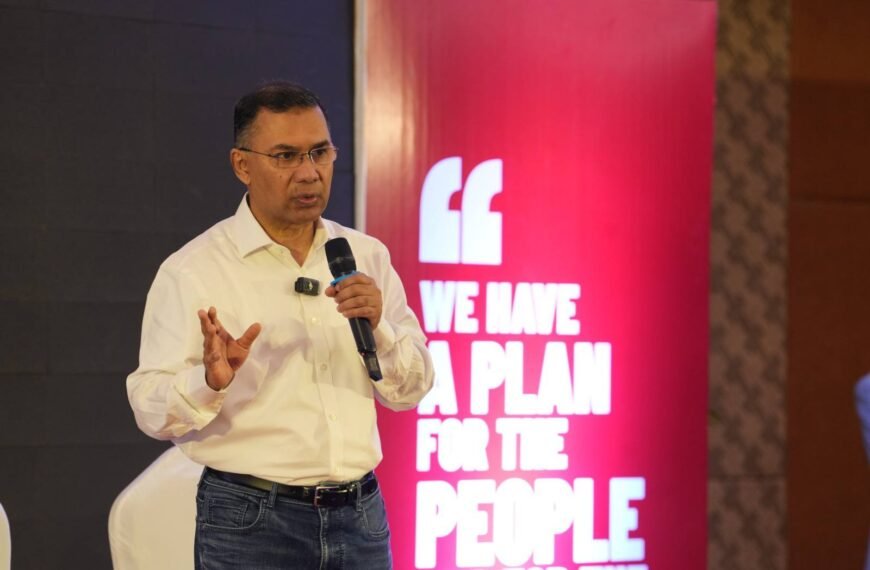According to the information of economists, various thinkers of the country and abroad and the news of some daily newspapers, the economy of Bangladesh survives on expatriate income and then the position of the garment industry. In 2022, Bangladesh exported garments worth 45 billion dollars. According to a World Trade Organization (WTO) report, Bangladesh has tripled its share of apparel exports in the global market, from just 2.5% in 2005 to 7.9% in 2022. On the other hand, the export of the garment industry in the last five years was about $200 billion with export earnings of 15% to 20%. Excluding the import bill and the salary allowance of foreign workers, Bangladesh’s garment industry and expatriate income in the last 5 years were respectively: export income from the garment industry was 40 billion dollars and expatriate income was 145 billion dollars out of 105 billion dollars.
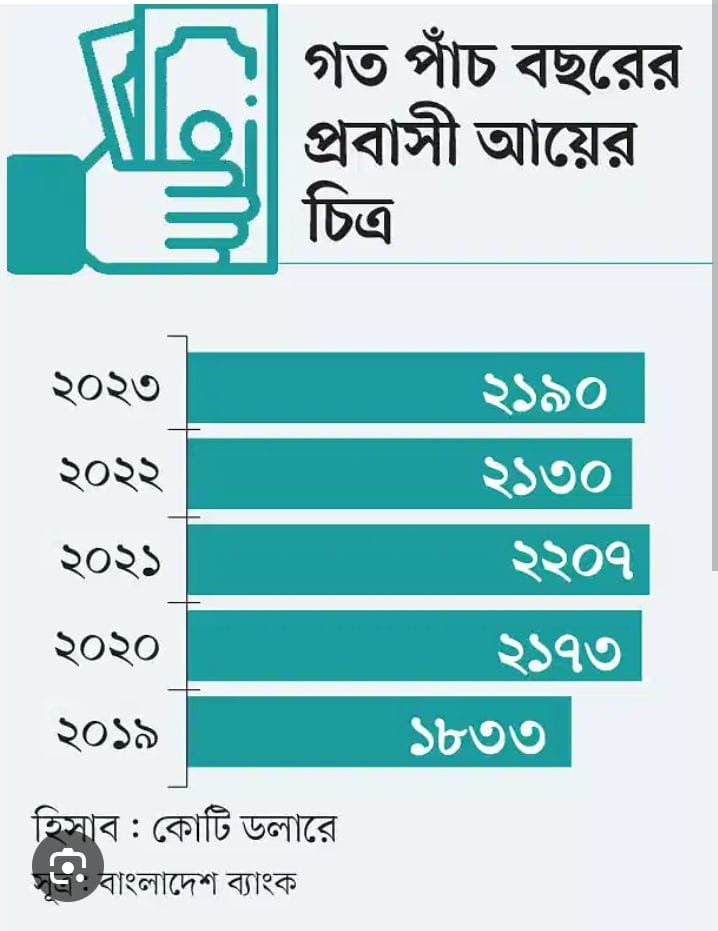
According to the information given by Bangladesh Bank, currently foreign investment in the country has decreased. Especially new investment (equity) has been declining consistently for three years. The report of Bangladesh Bank released the actual Foreign Investment (FDI) data for 2023. It showed that actual FDI fell by nearly 14 percent last year, while new investment fell by 31 percent during the same period. Our expatriate Bangladeshis can easily fill this deficiency.
Bangladesh is more dependent on expatriate income than the reserve garment industry, but on the other hand, the most successful part of the garment industry is the creation of employment for all classes of people, which cannot be achieved or even possible in any other sector of Bangladesh. This sector has not only enriched the country’s foreign exchange reserves, but also ensured the employment of about 4.4 lakh people, out of which about 60 percent are women. Apart from this, the backward and forward industries together have directly and indirectly created employment for about 1 crore people. At present, about 5 crore people of the country are somehow dependent on this industry for their livelihood. According to the Bureau of Manpower Employment and Training (BMET) 2023, 1 crore 5.5 million Bangladeshi migrants are living and working in various countries around the world and around 5 crore people are supported in the garment and textile sector.
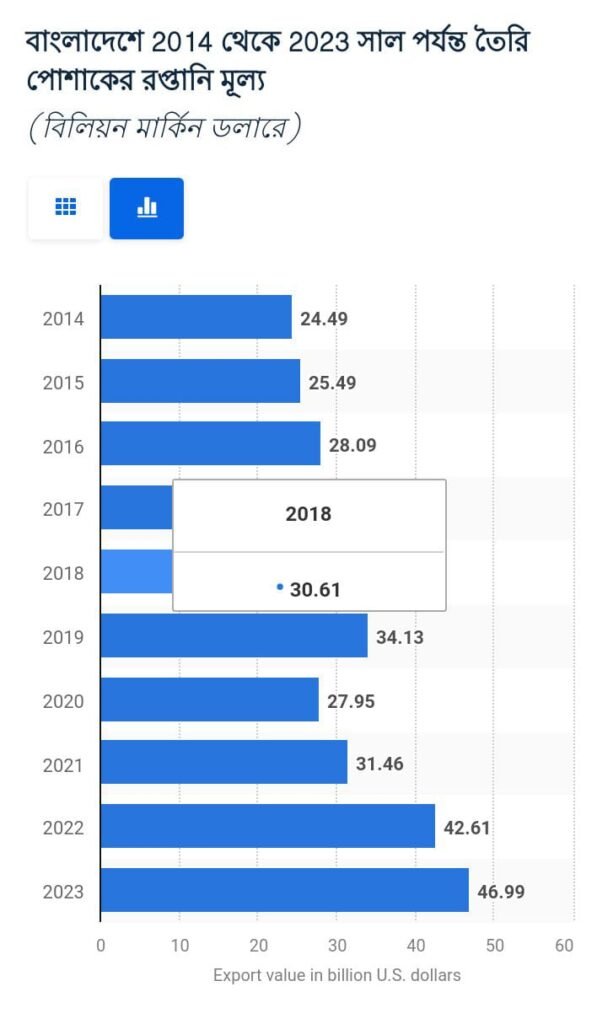
Moinul Islam Economist and Former Professor of Economics Department of Chittagong University has presented very nicely in the title “Remittance not Garments” published in Prothom Alo newspaper last February 14. If you read it, you will know more about it.
My topic of discussion is that we are the garment sector and another pillar of the country’s economy is our remittance warriors Remittance fighters also have huge scope to contribute to our readymade garment sector and export of versatile goods. Expatriate brothers can contribute to our garment sector and the export of versatile goods of Bangladesh
Already, many expatriate Bangladeshis of our country have been able to gain great reputation by doing business abroad and now in different countries of the world, the government of the country is giving special opportunities in different sectors to focus on the income of expatriates and that money so that they can invest in that country.
Prime Minister Sheikh Hasina has ordered to emphasize on increasing exports to various countries. He also asked to ensure that there is no concession in the quality of the product as per the export policy. (July 1) He gave this order in the Cabinet meeting. On this day, the Cabinet approved the draft of Export Policy 2024-27.
I believe there is a very large section among the expatriates who are educated and semi-educated highly educated expatriates who can say the best if there is a demand and opportunity to improve the products of Bangladesh in the country they are in. If they do the branding of versatile products and clothes of our country on their own responsibility and work to sell other products including the country’s clothing industry in the market of that country, then we will get them as buyers as well as our nominated buyers. Many people are doing it now, but if we can make a long-term plan for it now, it will create more new market areas for selling our clothes outside the country as well as increase the demand. Since I am involved in the readymade garment industry, I raised the possibility of one.
I hope that a new sun will rise in the garment sector of the country if two of the country’s economy, the garment and remittance warriors, work together. Expatriate Bangladeshi small and big businessmen working with us in addition to their normal work will create many possibilities of additional income in addition to their income, but in this case they have nothing to lose, after all, the wheels of this country’s economy will be more active. And I believe that if the diaspora brothers can dream of becoming entrepreneurs, then you alone can build a self-reliant Bangladesh with your own efforts. But here our policy makers also have a role to play. For example, BGMEA, BGBA, BKMEA, FBCCI should sit with expatriates and give them the opportunity to act as international ambassadors of the garment sector. I would like to draw the attention of the presidents of BGMEA, BGBA, BTMC, BKMEA and tell you to look at the Bangladeshi brothers in the diaspora, by working with such diverse thinking, our sector can go further in getting foreign orders and it will be easier to capture new markets in the future. It will be easy to present the branch office of the organization and our export products. Along with this, the policy makers of the apparel sector should come forward. From my little knowledge I shared this proposal in front of everyone. The ambassadors of your various countries are going to this. My sincere request is to give some time to our expatriate Bangladeshi brothers.
I think such a move would be helpful in achieving the export revenue target of $100 billion. On the other hand, the cabinet approved the proposed export policy for the period 2024-27. The export policy has set an export revenue target of US$ 110 billion in the last year of the term. Potential new products and services are included in the highest priority sectors. In order to meet the challenge of transitioning from the list of least developed countries and taking advantage of the benefits arising from the creation of action plans to achieve the benefits provided under the World Trade Agreement, integrated activities to facilitate the country’s trade have been given special importance in the export policy.
Then the government also wants the businessmen to come forward with a positive attitude.
Salaudin
Director Riaz Garments
Head of Operations


